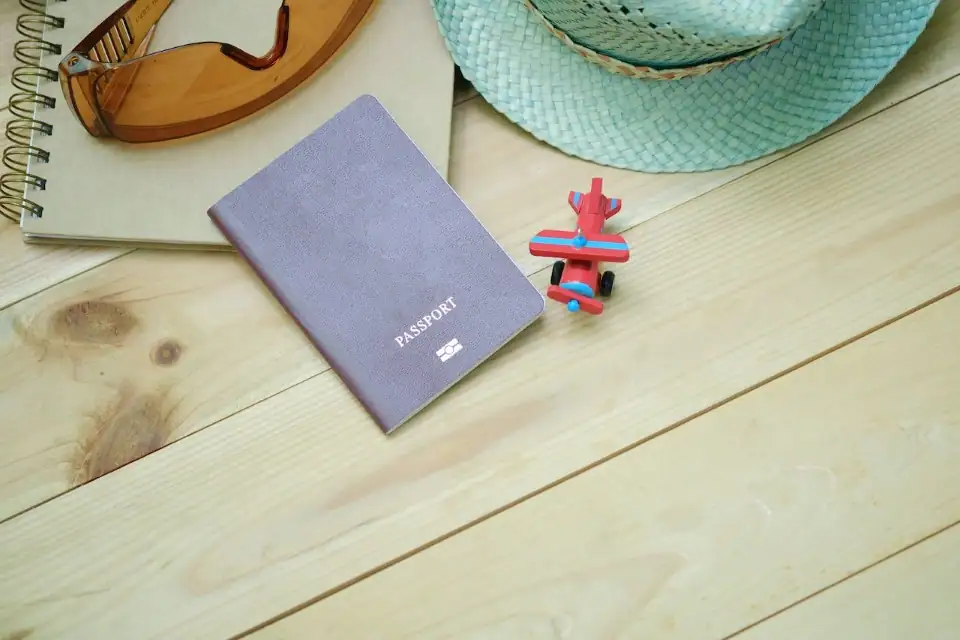Family court petitions can be filed for a variety of reasons, such as child custody and support. However, there may come a time when you decide that it’s necessary to withdraw your petition. Doing so is within your legal right, but it’s important to understand the process and potential consequences. This article will provide an overview of withdrawing a family court petition, specifically in regards to child custody cases.
What Is a Family Court Petition?
A family court petition is a legal document filed with the court that initiates a case in family law matters. It can be filed by either party in a family law matter, such as a divorce, child custody, visitation, or support. A petition sets forth the issues in dispute between the parties and asks the court to make a decision on those issues. Once a petition is filed with the court, the case is officially commenced, and that party is called the petitioner.
How Is It Filed?
A family court petition is filed by completing the appropriate form that is specific to the state where you live. The forms are available at the court’s website or in person at the courthouse. Once completed, you must file the forms with the clerk of the court and pay a filing fee. The court will then assign a case number to your matter. You will also be required to serve the other party with a copy of the petition. This is usually done through a process server, or you can ask the other party to accept service voluntarily.
What Are the Consequences of Filing a Petition?
Filing a petition in a family court case can have both positive and negative consequences, depending on the situation. A petition can be useful when you’re trying to establish your rights to child custody, visitation, or child support. But on the other hand, it can create tension and conflict between the parties. It’s important to keep in mind that once the petition is filed, you are starting litigation, which can be costly and time-consuming.
Can You Withdraw a Petition for Child Custody?
Yes, you can withdraw a petition for child custody at any time before the court makes a final decision on the matter. However, it’s essential to understand the potential consequences of withdrawing your petition so that you can make an informed decision.
Why Would You Want to Withdraw a Petition?
What Are the Main Reasons?
There are several reasons why you might decide to withdraw a petition in a child custody case. For instance, you may have reached an agreement with the other party outside of the court system. Or you may have realized that going to court is not in your child’s best interest. Additionally, you might not be able to afford the legal fees associated with custody battles. Whatever the reason, withdrawing your petition is a valid choice.
How Do You Act After a Withdrawal?
Once you decide to withdraw your petition, it’s essential to act quickly and responsibly. You must file a request to withdraw your case with the court. Depending on the state, this might require filing a motion with the court or submitting a praecipe to withdraw. You should also let the other party know that you are withdrawing your petition.
What Is the Consequence of a Wrong Decision?
Withdrawing a petition without fully understanding the consequences can have serious repercussions. For example, if you’re the petitioner in a child custody case, and you withdraw your petition, you may lose your right to file another petition for a specified period. If you’re the respondent, and you agree to withdraw a petition without having a clear understanding of what it means, you may be giving up important legal rights.
Who Can Withdraw a Petition in a Child Custody Case?
Can a Party Withdraw a Petition?
Yes, any party to the case can ask to withdraw a petition, regardless of whether you’re the petitioner or the respondent. However, it’s important to keep in mind that both parties must agree to withdraw the petition for the withdrawal to take effect.
Can an Attorney Withdraw a Petition?
Attorneys do not have the authority to withdraw a petition without their client’s consent. As an attorney, you can discuss the pros and cons of withdrawing a petition and provide guidance on the consequences. However, the decision to withdraw is ultimately up to the client.
When Can a Judge Order a Withdrawal?
A judge can order a withdrawal of the petition in limited circumstances, such as when there is a lack of jurisdiction or the case is properly terminated. However, a party must still request the court to withdraw the case formally.
What Is the Procedure to Withdraw a Petition?
What Information Must You Have?
Before withdrawing a petition for child custody, you need to make sure that you have all of the necessary information. This includes the case number, the name of the court, and the name of the judge assigned to your case.
What Forms Do You Need to File?
The forms required to withdraw a petition for child custody vary from jurisdiction to jurisdiction. It’s essential to contact the clerk’s office in the court where the case was filed to determine what forms need to be filed and in what format. Some states require a motion to withdraw or a praecipe to withdraw.
What Is the Deadline to Withdraw a Petition?
The deadline to withdraw a petition for child custody varies depending on the state and local court rules. In some states, you can withdraw your petition at any time before the court issues a final custody order. In other states, you may have to file a request to dismiss, which must be done before a particular date or hearing. It’s essential to check with the court’s rules or consult with an attorney to determine what the deadline is in your case.
What Are the Consequences of Withdrawing a Petition?
How Can You Avoid Negative Consequences?
Withdrawing a petition for child custody can have negative consequences, including losing the right to file a petition for a specified period. You can avoid these consequences by making an informed decision with the help of an experienced family law attorney. An attorney can provide you with adequate support and guidance before making any final decisions.
Do You Need to File Another Petition?
Once you withdraw your petition for child custody, you may need to file another petition in the future if you wish to pursue legal action again. However, if you have reached an agreement outside of court, you may be able to avoid filing another petition.
Can You Still Agree on Custody Outside of Court?
Yes, you can still reach an agreement on child custody outside of court, even if you have already filed a petition. If you do reach an agreement, you can file the agreement with the court, and the court will issue an order based on your agreement.
Family court petitions can be an essential tool to establish your rights in a child custody case. But, withdrawing the petition can be a valid choice if litigation no longer serves the best interests of the child. It’s essential to understand the consequences and process of withdrawing a petition. Consulting with an experienced family law attorney can help ensure that you make an informed decision.
Q: What is a family court petition?
A: A family court petition is a legal request made by a party in family court to ask for a ruling or decision by the court. It can be filed by anyone seeking relief related to family law issues such as divorce, child custody, child support, and domestic violence.
Q: How can I withdraw a family court petition?
A: To withdraw a family court petition, you can file a motion asking the court to dismiss the case. You may need to provide a reason for the withdrawal, and the judge may or may not allow the withdrawal depending on the circumstances.
Q: Do I need an attorney to withdraw a family court petition?
A: It is not required to have an attorney to withdraw a family court petition, but it is advisable to seek legal advice before taking any action. An attorney can advise you on the best course of action and assist with the necessary paperwork.
Q: What happens if I don’t withdraw a family court petition?
A: If you don’t withdraw a family court petition and it reaches a court order, you may be bound by the court’s decision. This can include decisions related to child custody, support, and division of property.
Q: Is there a right to withdraw a family court petition?
A: While there is no guaranteed right to withdraw a family court petition, a party may file a motion to withdraw the petition. Whether or not the court allows the withdrawal will depend on the particular circumstances of the case.
Q: What is a default in a family court case?
A: A default in a family court case occurs when one party fails to respond to a petition or show up for court proceedings. This can result in a decision being made in favor of the other party without the absent party having a say in the matter.
Q: How do I cancel a family court petition?
A: To cancel a family court petition, you can file a motion to dismiss the case. You may need to provide a reason for the cancellation, and the judge may or may not allow the motion depending on the circumstances.
Q: Can I withdraw a family court petition after receiving a response from the other party?
A: Yes, you can still withdraw a family court petition after receiving a response from the other party. However, it is advisable to seek legal advice on the best course of action before taking any steps.
Q: Will withdrawing a family court petition affect my custody case?
A: Withdrawing a family court petition may affect your custody case, but it depends on the circumstances. It is advisable to seek legal advice before taking any action to withdraw a petition.
Q: What should I do if I receive a notice of court hearing for my family court petition?
A: If you receive a notice of court hearing for your family court petition, you should appear at the hearing or ask for a continuance if you are unable to appear. It is advisable to seek legal advice and instruction on how to proceed with the hearing.







